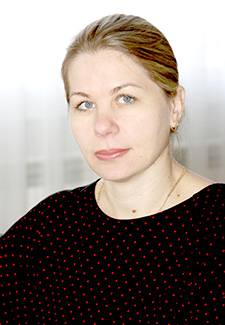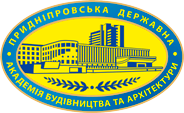Scientific profile

Associate Professor, Candidate of Technical Sciences (Ph. D.), Head of Department
Olena
NAHORNA
Contacts and CV
Research
Current research
«Enhancement of the efficiency of water supply and sewage systems, as well as small water objects» (0121U100400): 2023 - «Improving the operation of water supply and disposal system components»; 2022 – « Improving the operation of water supply and disposal system components »; 2021 – « Analysis of the impact of determining factors on the operation of water supply and water disposal system components ».
More
Past research
«Improvement of water supply and disposal systems operation, as well as methods for calculating the foundations and structures of water supply and hydrotechnical facilities» (0116U000779).
More
Publications
1. Nechytailo N. , Olena Nahorna, Yevhenii Kosiuk Defining the effect of the chemical concentration and solution pH on membrane chemical cleaning process / E3S Web of Conferences: International Conference Essays of Mining Science and Practice. 109, 00061 (2019) 09 July 2019, 7 p. DOI: https://doi.org/10.1051/e3sconf/201910900061 (Indexed in Scopus, CAS, Thomson Reuters, DOAJ, EBESCO, ProQuest).
2. Нечитайло Н.П., Нагорная Е.К., Нестерова Е.В., Шарков В.В. Математическое моделирование процессов массопереноса при ультрафильтрации воды / Вісник Придніпровської державної академії будівництва та архітектури. Дніпро: ПДАБА, 2019. Вип. 2. С. 48 – 56. DOI: https://doi.org/10.30838/J.BPSACEA.2312.280519.47.435
3. Nechytailo М. The grounds for the modification of membranes with the help of quantum mechanical calculation method / M. Nechytailo, O. Nahorna, O. Nesterova // E3S Web of Conferences: II International Conference Essays of Mining Science and Practice. 168, 00032 (2020) 06 May 2020, 11 p. DOI:
https://doi.org/10.1051/e3sconf/202016800032 (Indexed in Scopus).
4. Dolyna L., Nahorna O., Zhdan Y., Dolyna D. Water purification in space conditions. Вісник Дніпровського університету. №4. Т.29.. Серія: Ракетно-космічна техніка. Випуск 24. 2021. С. 194-202. DOI: https://doi.org/10.15421/452122
5. Нечитайло М. П., Нагорна О. К., Нестерова О. В. Основні фактори, що призводять до зниження надійності роботи оборотних систем охолодження Український журнал будівництва та архітектури. Дніпро: ПДАБА, 2021. №. 6 (006). С.62-68. DOI: https://doi.org/10.30838/J.BPSACEA.2312.281221.62.815
Courses
1. Water supply and water disposal of industrial enterprises
When designing water supply and water disposal systems for industrial enterprises, it is necessary to take into account the composition and properties of industrial wastewater, water discharge standards per unit of production, conditions for discharging industrial wastewater into the city sewage system and water bodies, the necessary degree of wastewater treatment, and the water consumption and discharge regime. As part of the course, higher education students will familiarize themselves with government resolutions and regulatory documents on wastewater treatment; the composition and properties of industrial wastewater; learn to choose methods of wastewater treatment depending on the required degree of purification and concentration of pollutants; study the requirements for the quality of water used by different types of consumers at industrial enterprises; explore possibilities for saving water resources; learn how to prepare technological schemes for water supply and water disposal for a separate industrial enterprise or a complex of enterprises; and identify criteria for evaluating and selecting the most rational water balance scheme for a separate industrial enterprise or a complex of enterprises.
2. Purification of industrial wastewater
Industrial wastewater treatment is a complex of engineering networks and facilities that are used to remove wastewater from the territory of an industrial enterprise, as well as facilities for preliminary treatment of wastewater and removal of valuable substances from it. When designing treatment facilities, it is necessary to take into account the composition and properties of industrial wastewater, norms of wastewater discharge per unit of production, conditions for discharging industrial wastewater into the city sewage system and reservoirs, as well as the required degree of treatment. The discipline explores industrial wastewater from the point of view of their composition, properties, methods of treatment, and disposal. Within the framework of studying the course, students will become familiar with government decrees and regulatory documents in the field of wastewater treatment, the composition and properties of industrial wastewater, methods of wastewater treatment depending on the required degree of treatment and concentration of pollutants, methods and facilities for wastewater treatment and processing of their sediment, technological indicators of the operation of facilities, and the possibility of their adjustment, and will carry out techno-economic justifications for the adopted technological decisions.
3. Modern resource-saving technologies in water supply and sewerage systems
As a result of studying the discipline, you will be familiar with government resolutions, legislation in the field of water supply and water disposal, normative documents; modern methods and means of energy and resource conservation; methods of planning, management, and control of energy and resources; global and state indicators, programs, and measures for the efficient use of water and energy resources in civil engineering systems. You will be able to make independent decisions in the field of water supply and water disposal, taking into account energy and resource conservation; conduct surveys of objects, equipment, enterprises, and territories in order to identify ways of resource conservation; carry out technical and economic assessment of energy-saving measures and projects.
4. Methods of scientific research, licensing and patenting of scientific products
This course aims to develop students' complex systemic thinking and a set of specialized knowledge and skills in the field of scientific research, organization of scientific activities, planning of experimental research, and processing of obtained results, licensing, and patenting of scientific products. The course provides theoretical and practical training for students on formulating a scientific hypothesis, setting goals and objectives for scientific research, designing and planning a research project, identifying research tasks, collecting necessary information, analyzing data, and formulating conclusions. Students will learn to apply scientific approaches and methods to generate new ideas and develop creative and innovative solutions, independently structure and develop content and conclusions of scientific and analytical texts, and understand patenting and licensing procedures.
5. Treatment of wastewater from small water supply systems
Water resources are one of the most important resources for sustaining life on the planet today. The ability to use these resources, ensure their protection, rational use, and restoration is impossible without knowledge of water purification methods, possibilities for its reuse, and discharge after purification into a water body in compliance with all necessary requirements. As a result of studying this discipline, you will know the composition and properties of wastewater from small water supply systems; the main approaches and methods of treatment of communal and domestic wastewater from small settlements; measures to protect surface and groundwater sources of water supply from pollution by wastewater; facilities for treating wastewater from small water supply systems and processing of wastewater sludge. You will be able to independently determine the composition and properties of wastewater from small water supply systems; design the entire complex of treatment facilities ensuring the necessary degree of treatment and environmental protection.
6. Sewerage and wastewater treatment
The use of the most advanced methods of designing, constructing and operating water disposal systems and structures, wastewater treatment plants, ensuring optimal construction terms, high-quality work with minimal labor and material costs and at the same time with high environmental protection effect - is the basis for the future professional activity of the educational program graduate. The course provides students with the opportunity to independently design the entire complex of facilities for treating domestic and industrial wastewater based on modern achievements of domestic and foreign science and technology in this field, using computer technology tools; provide a technical and economic evaluation of project decisions; carry out construction of treatment facilities using knowledge gained from specialized disciplines; rationally operate water disposal structures; possess skills for analyzing and researching the operation of structures and correctly evaluating the advantages and individual constructions of the water disposal system.
7. Water engineering and water technologies
Water resources are currently one of the most important resources for sustaining life on the planet. The ability to use these resources, ensure their protection, rational use, and restoration is the task of each individual. As a result of studying this discipline, you will know the reasons for unsatisfactory meliorative state of the territory and methods and ways to improve it; the structure and composition of hydromeliorative systems in the irrigation and drainage zone; methods of irrigation and drainage of soils; basics of designing hydromeliorative systems; the impact of hydromeliorative measures on the environment. You will be able to independently forecast the water regime of the territory and determine the need for work to improve it; determine the need for land reclamation or irrigation; design a meliorative system on a plan; calculate the basic parameters of hydromeliorative system elements; design crop rotation fields on reclaimed lands; determine the areas of land alienation on hydromeliorative systems.
8. Hydroamelioration
After studying this discipline, you will know the main types of land reclamation and their application areas; the theoretical foundations of irrigation and drainage of agricultural crops; the methodological foundations for calculating irrigation regimes for insufficiently moistened and drainage regimes for excessively moistened lands; the techniques and technologies used for land irrigation and drainage; the tasks and composition of work when monitoring reclaimed lands; and the methodology for conducting observations. You will be able to independently conduct water balance calculations to determine the required irrigation and drainage regimes for reclaimed lands; determine the technical characteristics of land reclamation machinery; evaluate the compliance of land reclamation machinery with the specific technology requirements for growing crops on reclaimed lands; use information and computing software; and navigate the database on land zoning and soil classification based on technical and reclamation factors.
9. Water supply, water disposal, improvement of water quality
In the course of studying this discipline, you will learn about the characteristics of water supply and drainage systems as a complex of engineering structures, external networks and structures of water supply and drainage systems, as well as water supply and sewage systems of buildings and individual structures. As a result of studying the discipline, you will know the systems and diagrams of water supply and drainage, methods and structures for improving the quality, supply and distribution of drinking water, methods and structures for transporting and treating wastewater and sludge, basics of designing, constructing and operating internal and external water supply and drainage systems. You will also learn about the principles of engineering systems in buildings, equipment and network structures, and ways to increase the efficiency of water supply and drainage systems by using progressive solutions and modern equipment.
10. Heat transfer in water supply and water disposal systems
The course covers the basic techniques for calculating mass transfer processes, as well as the fundamentals of designing mass exchange equipment. You will learn about the types of mass transfer processes, their characteristics, and how to formulate mass transfer equations. You will also learn about mass transfer involving solid phases and separation of liquid systems. The course will cover the main principles of mass transfer theory for sedimentation, filtration, centrifugation, and adsorption. Additionally, you will become familiar with examples of existing mass exchange equipment that are used in modern water supply and wastewater systems.
